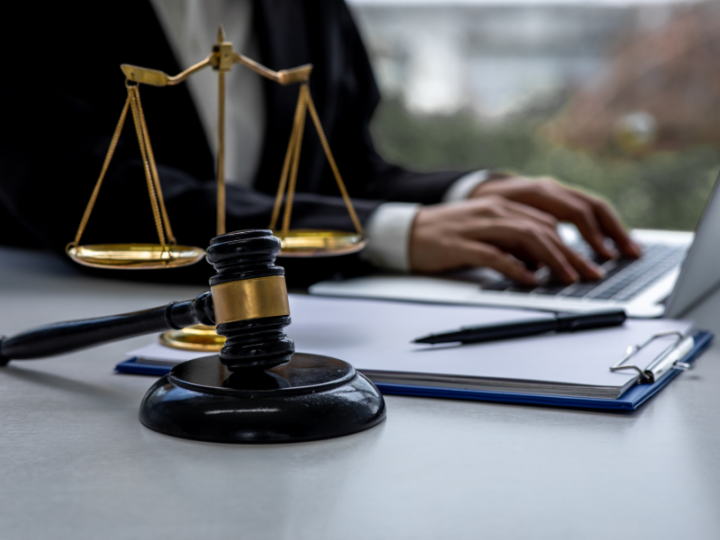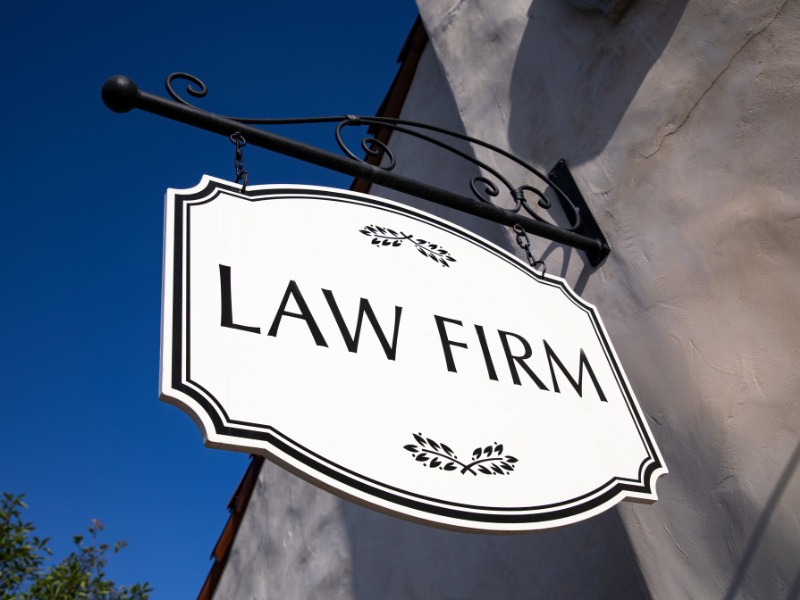Law firms cater to various clients, including those who work or run businesses in the healthcare industry. Therefore, it is a must to understand the specific guidelines and requirements set by the Health Insurance Portability and Accountability Act (HIPAA). Under such circumstances, law firms must have the capacity to safeguard sensitive details like protected health information (PHI).
This post delves into the importance of HIPAA compliance for law firms and what must be done to ensure they meet these requirements.
Table of Contents

Understanding HIPAA Compliance for Law Firms
As one of the most heavily regulated industries, healthcare providers often seek the help and services of law firms to navigate a myriad of compliance laws and regulations.
Law firms specializing in healthcare then fall into the business associate category, which compels them to follow HIPAA compliance guidelines, specifically the rules involving the safety and privacy of protected health information (PHI).
Law firms that function as business associates are then responsible for representing particular entities in litigation and, at the same time, advocate the protection of patient rights, which is crucial for maintaining the overall integrity of the healthcare system.
Does HIPAA apply to attorneys?
Attorneys must follow HIPAA rules under specific circumstances, particularly if they are part of a law firm that provides legal services to covered entities.
Those in specific practice areas, such as elder law and insurance defense, will likely encounter sensitive client data involving PHI. In such scenarios, attorneys have the ethical and legal obligation to safeguard PHI following the HIPAA rules and guidelines.
Law Firm HIPAA Compliance: Are Law Firms Bound by HIPAA?
Are law firms required to comply with HIPAA regulations?
In general, law firms are not obliged to comply with the regulations of HIPAA. However, specific circumstances may compel them to do so. For instance, when providing legal services to clients handling PHI. This makes law firms “business associates” of covered entities like hospitals, clinics, and other healthcare organizations.
As HIPAA holds covered entities and their business associates responsible for safeguarding patient privacy, law firms must implement strict protocols and security measures to keep PHI safe from unauthorized access.
Compliance with HIPAA is essential for law firms to ensure client confidentiality and maintain professionalism. It also demonstrates their commitment to practicing responsible legal practices and ethical standards.
HIPAA Compliance Rules and Requirements for Law Firms
Privacy Rule
The HHS published the HIPAA Privacy Rule in December 2000, and became effective on April 14, 2001. It regulates the use and disclosure of PHI by covered entities, including healthcare providers, health plans, and healthcare clearinghouses. However, law firms may also come into contact with PHI while representing clients in healthcare-related cases or providing legal services to healthcare entities.
Under the Privacy Rule, law firms must obtain written patient authorization before using or disclosing their PHI, except when required by law or for treatment, payment, or healthcare operations. The minimum necessary standard must be adhered to, limiting the use and disclosure of PHI to what is essential for the intended purpose. Law firms should appoint a designated privacy officer to oversee HIPAA compliance efforts and handle client inquiries related to privacy practices.

Security Rule
The HIPAA Security Rule, established in 2003, explicitly protects electronic protected health information (ePHI). As health information is digitized and cyber threats increase, effective regulation is necessary to protect individual health information.
To follow the Security Rule, law firms must conform to national physical, technical, and administrative safeguards to safeguard ePHI, such as establishing security policies and procedures and providing staff training on data security.
Breach Notification Rule
The HIPAA Breach Notification Rule, introduced through the HITECH Act in 2009, outlines requirements for covered entities and business associates in case of a data breach.
Law firms must develop a comprehensive incident response plan to handle security and privacy threats. When a breach is detected, the firm must notify the affected individuals, the Department of Health and Human Services (HHS), and, in some circumstances, the media. The breached entity must also provide information on the nature of the breach, conduct a detailed investigation, and implement action plans to prevent future incidents.
Omnibus Rule
The HIPAA Omnibus Final Rule of 2013 expanded the scope of HIPAA to include business associates and subcontractors who handle PHI on behalf of covered entities. Prior to this, the main responsibility for protecting PHI was only given to covered entities such as healthcare providers and health plans.
The Omnibus Rule requires business associates to comply with HIPAA regulations, making them equally accountable for safeguarding PHI. Law firms that act as business associates, handling PHI on behalf of healthcare clients, are subject to the same level of HIPAA compliance as covered entities.

Best Practices for HIPAA Compliance in Law Firms
To ensure ongoing HIPAA compliance, law firms should adopt the following best practices:
- Execute Business Associate Agreements: If a law firm works with a covered entity or third-party vendors, they should ensure that a BAA is signed. BAAs outline the responsibilities of all parties to protect PHI. Law firms can be held accountable for service provider HIPAA violations without proper implementation.
- Designate a privacy officer: A designated individual should ensure HIPAA compliance in the law firm. This person must have the necessary experience and expertise to ensure compliance with HIPAA rules and regulations.
- Conduct HIPAA training for staff: Conduct regular training sessions for all employees who may come in contact with PHI. Educate staff on HIPAA regulations, the firm’s policies and procedures, and maintaining client confidentiality.
- Restrict PHI access: Limit access to PHI to authorized individuals who require it to perform their job duties. Implement role-based access controls and regularly review access privileges to prevent unauthorized access.
- Dispose of PHI documents properly: Implement secure document disposal procedures, such as shredding or secure electronic deletion, to prevent unauthorized access to PHI.
- Formulate an incident response plan: Develop a comprehensive incident response plan that outlines the steps or actions to be taken in case of a data breach.
- Secure electronic devices: Ensure that laptops, smartphones, and other electronic devices that may contain PHI are adequately protected with passwords, encryption, and remote wiping capabilities. Use HIPAA-compliant fax, email, and other secure communication channels.
When it comes to HIPAA-compliant online faxing, iFax offers the best solutions tailor-made for your business or organization. Its military-grade encryption and advanced user access controls can ensure the safety of each fax received and sent.
If you want to ensure compliance when faxing healthcare documents, consider iFax’s affordable faxing plans.
Request a demo now. It’s free.







